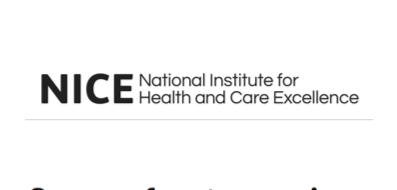
NICE Guideline: Patient decision aids launched to help women choose which surgical option for stress urinary incontinence or pelvic organ prolapse is right for them
NICE Guideline: Patient decision aids launched to help women choose which surgical option for stress urinary incontinence or pelvic organ prolapse is right for them
Rakesh Tailor, from Contura International comments; “Today’s published NICE Clinical Guideline for urinary incontinence and pelvic organ prolapse has been much anticipated by clinicians and women alike. What is of importance to many Urologists and Urogynaecologists is that minimally-invasive treatments for stress urinary incontinence (SUI) must be front of mind when women seek help for this often embarrassing and uncomfortable condition. The new ‘decision aids’ to be introduced as part of this Guideline, seem to support this approach.
“It is vital that the new Guideline allows clinicians to discuss and offer their patients the most appropriate and most effective treatment for their symptoms of SUI. And for many, that will be ‘bladder neck injections’ such as Bulkamid – a treatment that has been used across the NHS for over a decade with around 80% patient satisfaction.1
“What is encouraging to see is that “patient choice” appears to be at the very heart of this updated Guideline, with direct reference made to the importance of women affected by SUI being kept informed of all the options available and highlighting the fact that non-surgical minimally invasive and effective options, with an extremely high safety profile, are widely available.”
Contura supports the UK wide campaign, Control Your Choice, empowering and educating women to seek advice and treatment options for stress urinary incontinence. Visit www.controlyourchoice.co.uk to learn more.
He adds; “Just last week, over 200 delegates met in London for a day-long, international conference exploring a range of topics in the treatment of female SUI which included a robust data review, particularly for Bulkamid, along with the importance of patient centric decision making. Speakers from across the world presented a strong case for the inclusion of bulking agents as a primary treatment for SUI, which affects around one in three women globally. To learn more about Bulkamid visit www.bulkamid.com
“Interestingly, all speakers reiterated the fact that patients are “wanting alternatives” to mesh, a view supported by an independent, national survey among 2,000 women2. Almost half of those questioned (48%) said recent concerns covered in the media about mesh would deter them from seeking any advice from a health professional about treatment options for SUI and more than one in 10 women (12%) said they had left it for up to 5 years or more before approaching their GP.
“A figure that is predicted to grow due to the backdrop of the recent mesh scandal.
“Many women simply don’t want a long stay in hospital, weeks off work or to run the risk of potential complications in the future. Evidence supports the efficacy of bulking agents and the time has come for NICE to encourage clinicians to speak openly to their patients about ALL of the options available and to help them make an informed decision.”
-ENDS-
For further information or to request an interview with Rakesh Tailor or an expert consultant urologist / urogynecologist, please call Jo Hudson in the Contura int’l press office on 020 7112 4905 / 0770 948 7959 / jo.hudson@trinitypr.co.uk
Case studies of women who have spoken openly about their treatment using bulking agents and how it has changed their lives are also available on request.
1 Pai A, Al-Singary W. Durability, safety and efficacy of polyacrylamide hydrogel (Bulkamid®) in the management of stress and mixed urinary incontinence: three year follow up outcomes. Cent European J Urol. 2015; 68(4): 428-433.
2 Research carried out by The 4media Group was commissioned by Contura International. Fieldwork for the survey took place 1st – 4th December 2017, among 2,000 women, aged 18+
